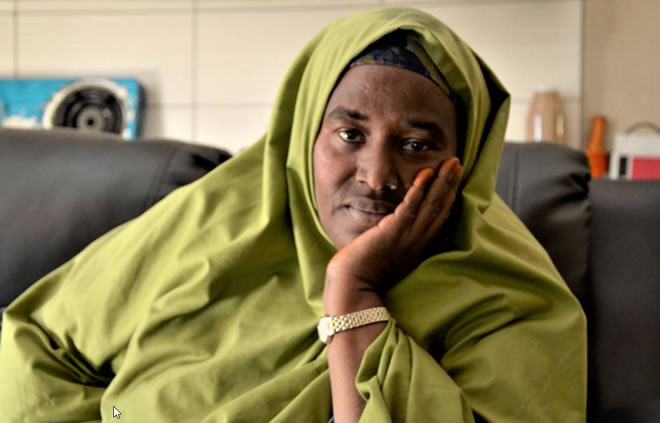
Monday July 8, 2019

JOHANNESBURG (Thomson Reuters Foundation) - In the hallway of a large, brick-face apartment block in Johannesburg, Halima Jawahir greets her tenants, a group of six Somali women drying their henna-painted hands in the sunlight streaming through the windows.
After fleeing ongoing civil war in her native Somalia in 2016, Jawahir is now reinventing herself as a property mogul in the Mayfair neighbourhood in Johannesburg, South Africa’s biggest city.
She rents an entire building of more than 100 flats from a South African landlord, before sub-dividing them into rooms, and subletting them to other mainly Somali and Ethiopian refugees.
But as a refugee without documentation, Jawahir is also breaking the law by subletting flats - a risk worth taking, she said, to save up enough to one day own her own property.
“I am a widow, so I have to look after myself,” said the 45-year-old, adjusting her green hijab as she sat on the couch in her second-floor flat.
The United Nations estimates that at least 30,000 Somali refugees live in South Africa.
The country is wrestling with a massive backlog of asylum applications, according to human rights groups, leaving many refugees waiting months or even years for the authorisation to work, go to school and find a place to live.
Faced with this legal and economic uncertainty, some Somali women are challenging social norms and navigating the male-dominated property market in the hope that, one day, they will have the security that comes with owning a place of their own.
Jawahir’s building is one of about a dozen properties in Mayfair that are being rented and then sublet by Somali refugee women, according to the Somali Community Board of South Africa.
For renters, subletting provides a stable source of income, and for their tenants it is often the only way they can afford a place to live, said Jawahir.
This is especially true for refugee women, many of whom are running their households and raising their children alone as they wait in limbo to be granted refugee status.
“Undocumented migrants do not qualify for government housing or subsidies and the impact of this overburdens mothers,” said Tiffany Ebrahim, a researcher at the Socio-Economic Rights Institute of South Africa, a human rights organisation.
“And the private (housing) market is inaccessible because it is so expensive, forcing people to fall back on solutions that are temporary with little security of tenure.”
Jawahir, whose name was changed to protect her identity, said that “as refugees and as women, we are always hustling”.